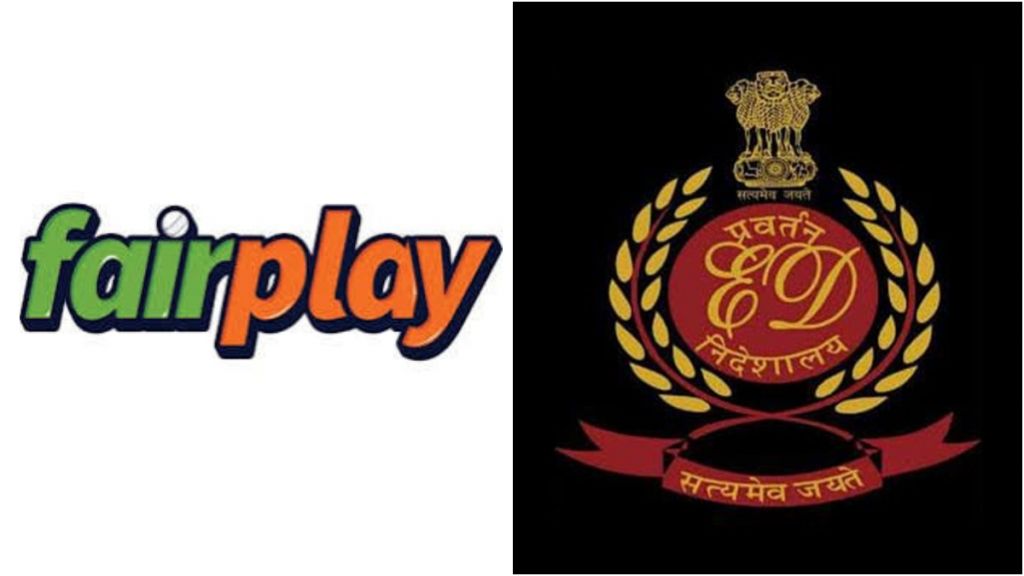
Mumbai: The Enforcement Directorate (ED) has uncovered a sophisticated financial network orchestrated by the betting platform Fairplay, revealing intricate methods of fund concealment and money laundering. The ED's investigation has revealed that Fairplay's operational structure was designed to mask the illegal nature of its activities, particularly concerning the handling of funds. A crucial element was a Delhi-based non-banking financial company (NBFC) that allegedly facilitated payment processing and other banking operations for Fairplay. Through this NBFC's financial web, Fairplay allegedly laundered over Rs 4,500 crore, with a significant portion coming from non-whitelisted entities, which further complicated detection efforts.
The identified Delhi-based NBFC, operating in both Business-to-Business (B2B) and Business-to-Consumer (B2C) sectors, has emerged as a central figure in the money laundering activities linked to the Fairplay betting app. The company allegedly crafted complex mechanisms to layer illicit funds, routing them through numerous dummy bank accounts and entities across India. These efforts reportedly enabled the illegal transfer of substantial sums to overseas destinations, supporting Fairplay's financial operations.
The NBFC, played a pivotal role in managing the financial operations of the Fairplay betting platform. It was strategically used to handle user transactions, managing deposits through discreet escrow accounts while processing payouts via virtual bank accounts linked to shell entities. These shell entities, allegedly fictitious with no legitimate business activities, were key in creating a complex financial structure. This setup effectively masked the direct association between Fairplay and the suspected illicit transactions, raising concerns about regulatory loopholes in the financial ecosystem.
The NBFC's role went beyond payment processing; it allegedly facilitated Fairplay's transactions by exploiting non-KYC (Know Your Customer) account holders to conduct transactions without regulatory oversight. These account holders did not undergo the standard identification and verification processes required by law, which allowed Fairplay to move money anonymously. This setup effectively shielded the real identity of the individuals or entities allegedly involved in the transactions.
Additionally, non-whitelisted entities were allegedly employed to facilitate financial transfers. These entities were not recognized by official financial institutions, making them less likely to attract scrutiny. By using non-whitelisted entities in conjunction with non-KYC account holders, Fairplay allegedly created a system in which money, without regulatory intervention, could flow freely.
One of the investigation's key findings was the alleged use of over 2,000 sham (dummy) bank accounts linked to the NBFC, spread across various Indian banks. These accounts were vital for Fairplay's deposit and withdrawal operations, enabling funds to move while avoiding detection. Many of these accounts were allegedly linked to shell companies, which existed solely for the purpose of funneling money on behalf of Fairplay.
These dummy accounts were opened in the names of unrelated or fictitious individuals and were allegedly used to circulate funds within the Fairplay ecosystem. The money moved between these accounts in a highly coordinated manner, concealing the true nature of the transactions and making it difficult for law enforcement agencies to trace the origin of the funds.
Moreover, Fairplay allegedly exploited financial services like Domestic Money Transfer (DMT) and the Bharat Bill Payment System (BBPS) through this NBFC. While these services are meant for legitimate transactions, Fairplay allegedly used them to mask the origins and destinations of illicit funds, adding another layer of complexity to detection efforts.
The said NBFC operated through escrow and nodal accounts, which are typically used to temporarily hold funds during transactions. However, in this case, the identified NBFC allegedly used these accounts to receive large amounts of money collected from Fairplay users. These funds were then loaded into virtual bank accounts opened for shell entities, which allowed for the eventual payout to Fairplay users.
Once funds were deposited into NBFCs escrow accounts, they were quickly circulated across a network of dummy bank accounts located all over India. This allowed Fairplay to obscure the trail of money, making it nearly impossible for law enforcement agencies to detect the true source and destination of the funds. By utilizing such a vast and decentralized network of accounts, Fairplay ensured that the funds were effectively laundered and hidden from authorities.